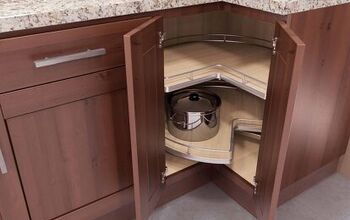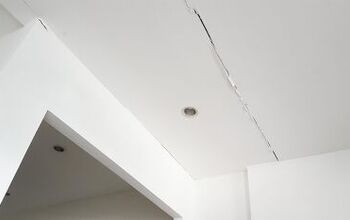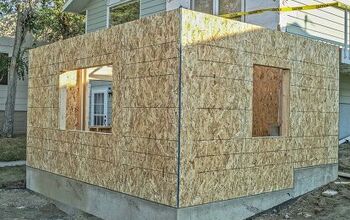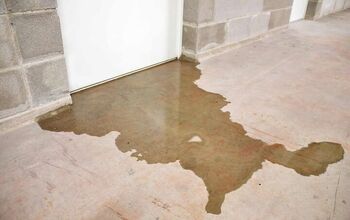Contractor Left Equipment On Your Property? (Here's What You Can Do!)

Debating faucet styles, paint colors, flooring, and insulation are just a few of the issues that can plague a homeowner. Home improvements of any kind are never easy, and sometimes you may need a contractor to step in.
If a contractor leaves equipment on your property, it can become an unsightly headache that you have to deal with. Fortunately, you have a few options to attempt to deal with the situation. You can talk to your contractor, take him to court, or sell off his equipment in many cases.
Contractors are usually professional but some may take the money and run, or finish a job not up to your standards. Others may actually damage your property or leave a big mess, often leaving you worse off than you were before.
How Do I Know If a Contractor Left Equipment on My Property?
As soon as your contractor tells you that they finished the job, you should walk around and evaluate their work. You should never pay no more than half of the bill upfront, paying the balance when the work is completed.
You should also walk around the perimeter of your property to make sure that the trash has been disposed of properly. Check that there isn’t any remaining equipment or trash on your property that doesn’t belong to you.
What Do You Mean by Equipment?
In this case, equipment is anything left behind that isn’t trash. It could be hammers, ladders, buckets, or power tools.
If something was purchased as part of your contract, for example, wood flooring or tiles, it isn’t considered equipment. Because you paid for it, it’s yours, and the contractor is required to leave that stuff with you.
How Do I Know If Something Is Trash?
Trash could be anything left in a garbage bag or anything without real value, including leaves and cut grass.
Contractors are generally required to dispose of trash so while it isn’t equipment it’s something they should take care of. Items that can be sold, like lumber from a cut-down tree, may need to be picked up later.
Talk to Your Contractor
If you find something you’d like addressed, let the contractor know you won’t be issuing payment until problems are resolved. Talking to your contractor before you do anything else is always a good idea, communication is key.
If anything, it ensures that you and your contractor are both on the same page and aware of the situation. Oftentimes, your contractor had no idea and will rectify the situation immediately.
Be Sure to Send Everything in Writing for Your Legal Protection
If possible, try to send an email so that the reason you didn’t pay is in writing. Be very specific, including dates, times, what isn’t right, and an exact list of what items you’d like removed.
If for some reason your contractor ends up suing you, you’ll be able to show exactly why you didn’t pay. Hopefully, this handles the problem but if it doesn’t, you can move on to the next step.
Send Your Contractor a Certified Letter
If nothing has changed after talking to your contractor, and it’s been a few days, take it a step further. You should now plan on getting help via the legal system to help you remove the items from your property.
A certified letter can be sent through the United States Postal Service from any post office for under $10. You’ll definitely want to make sure to require a receipt so that you can prove your contractor received it.
Many states allow sending a certified letter stating that equipment will be sold within 30 days of receiving the letter. If this applies to you, you’ll be able to get rid of the equipment without too much trouble.
Take Your Contractor to Small Claims Court
If you aren’t in a state that allows you to sell the equipment, you may have to go to court.
Small Claims Court will generally run you a filing fee of $20-150 but will save you attorney fees. You’ll be able to represent yourself and can claim losses up to $5000-10000, depending on your state.
Keep in mind, although you may be tempted to trash/sell your contractor’s equipment you aren’t allowed to do so. You must store your contractor’s equipment for a period of time determined by the laws of your state.
Sell Large Equipment
If the court system says it’s okay, you may follow steps to sell the equipment to make back some money. Craigslist and Facebook Marketplace are great options, are free and local, and are wonderful for big pieces of machinery.
Be sure to note in all listings that you are selling used seized equipment, so that you aren’t blamed for anything broken. You should also prepare to sell it at a price undervalue because you don’t know it’s full history.
Sell Small Equipment
If it’s something small, you can try selling it on eBay, or Etsy for handmade items or tools. Just remember to lower the price, and to state where the pieces came from in case there’s an issue later.
It’s also okay to keep the equipment if it’s something you’d like to keep or something useful. These items could include things like tarps, paintbrushes, levels, ladders, nails, screws, washcloths, hammers, stools, sheetrock, or buckets.
Check out our guide: The Best Places To Sell Used Tools
Continue Trying to Contact Your Contractor
Keep in mind that people have situations outside of their control, such as hospitalization, injury, and even death. You may want to keep emailing and phoning your contractor to see if you can’t come to a civilized solution.
Contact Your Homeowners Association (If You Have One)
If you belong to a homeowners association, you can approach them for assistance. Depending on the fees that you pay them, they may have an attorney on retainer who can help you out with these types of issues.
You should always ask before doing work though, because a homeowner’s association may fine you for not following their rules.
What If My Contractor Disappeared?
If your contractor vanished and still owes you money for work they didn’t complete, your best bet is to take them to small claims court. Just like the above examples, many courts will allow you to sell that equipment to recoup some of your expenses.
What If My Contractor Won’t Answer Calls?
If your contractor won’t answer phone calls, you can try various means of communication. Emails, texts, and letters are great ways to keep your communication documented at all times. This could also be shown to a judge as proof of their non-reply.
Related Questions
How can I avoid a contractor leaving equipment on my property in the first place?
It’s always a wonderful idea to make sure that everything is spelled out in your initial contract. This should include exactly what you want the contractor to do, and in what order or steps. It should include a due date, and “time is of the essence” if you need the job completed quickly. You can add in fines or a reduction of fees for things like equipment or trash left on the property. This could be an extra incentive for the contractor’s team to pick up behind themselves!
What if my neighbor’s contractor left equipment on my property?
While you can’t control your neighbors, you have a right to not have their contractor’s machinery on your property. Go through the steps above, but talk to your neighbors first. It’s their responsibility to talk to the contractor as they are the ones who chose and hired that company. Hopefully, your neighbor will read this article and take the steps to get your property clear from contractor equipment!
Where can I find a good contractor to begin with?
You can ask friends for recommendations, or ask for referrals on social media. You can also check the Yellow Pages or a site like Angie’s List.
Related Guides

Stacy Randall is a wife, mother, and freelance writer from NOLA that has always had a love for DIY projects, home organization, and making spaces beautiful. Together with her husband, she has been spending the last several years lovingly renovating her grandparent's former home, making it their own and learning a lot about life along the way.
More by Stacy Randall












![Finishing Basement Without Permit [Is It Really Illegal?]](https://cdn-fastly.upgradedhome.com/media/2023/07/31/9070078/finishing-basement-without-permit-is-it-really-illegal.jpg?size=350x220)














